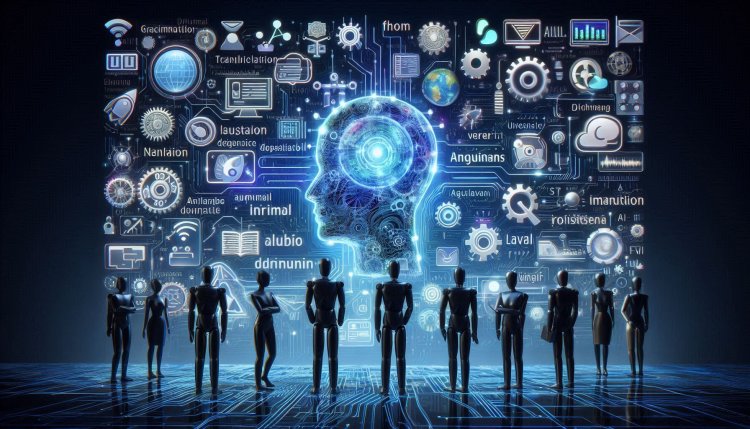AI in entertainment: Content creation and curation
Explore how AI is revolutionizing content creation and curation in the entertainment industry. Discover the future of entertainment with artificial intelligence.

AI in entertainment: Content creation and curation
Artificial Intelligence (AI) has made significant advancements in the entertainment industry, particularly in the areas of content creation and curation. From music and film production to gaming and virtual reality experiences, AI is revolutionizing how content is produced, distributed, and consumed. Let's explore how AI is shaping the future of entertainment.
Content Creation
AI is being used to create original content across various mediums, including music, film, and literature. In the music industry, AI algorithms can analyze vast amounts of data to generate new melodies, harmonies, and even lyrics. Platforms like Amper Music and Jukedeck use AI to compose music tailored to specific moods or genres.
For filmmakers, AI can assist in the scriptwriting process by analyzing successful scripts and predicting audience preferences. Tools like Scriptbook and ScriptBook AI can evaluate scripts for market potential and provide recommendations for improvements. AI is also being used in post-production tasks such as video editing and special effects generation.
In the realm of literature, AI-powered writing assistants like Grammarly and Hemingway Editor help authors refine their writing by offering suggestions for grammar, style, and tone. Some AI programs, such as OpenAI's GPT-3, are even capable of generating coherent text based on prompts provided by users.
Content Curation
AI is also playing a significant role in content curation, helping users discover relevant and personalized entertainment options. Streaming platforms like Netflix and Spotify use AI algorithms to recommend movies, TV shows, and music based on users' viewing and listening habits. These recommendation systems analyze user data to predict preferences and suggest content that aligns with individual tastes.
In the gaming industry, AI-powered recommendation engines can suggest new games based on a player's gaming history and preferences. This personalized approach enhances the user experience by offering tailored recommendations that cater to individual interests and playing styles.
Virtual reality (VR) experiences are also benefiting from AI-driven content curation. AI algorithms can analyze user interactions within VR environments to customize content and provide immersive experiences that align with user preferences. This personalization enhances user engagement and makes VR experiences more compelling and enjoyable.
Challenges and Opportunities
While AI has brought numerous benefits to content creation and curation in entertainment, there are also challenges and ethical considerations to address. One concern is the potential for AI-generated content to lack originality and creativity, as algorithms may rely on existing data patterns to generate new material. Balancing AI's efficiency with the need for human creativity remains a key challenge for content creators and curators.
Another challenge is the ethical use of AI in entertainment, particularly in areas like deepfake technology and content manipulation. Ensuring transparency and accountability in AI algorithms is crucial to maintain trust and integrity in the industry. Additionally, concerns about data privacy and security arise as AI systems collect and analyze vast amounts of user data for content recommendations.
Despite these challenges, AI presents significant opportunities for innovation and growth in the entertainment industry. By leveraging AI technologies, content creators and curators can enhance the quality and diversity of entertainment offerings, reaching broader audiences and creating more engaging experiences.
The Future of AI in Entertainment
The future of AI in entertainment holds immense potential for creativity and innovation. As AI algorithms continue to evolve and improve, we can expect to see even more sophisticated content creation tools that blur the line between human and machine-generated content. Collaborations between AI systems and human creators are likely to become more common, leading to new forms of artistic expression and storytelling.
AI-driven content curation will also become more personalized and intuitive, providing users with tailored recommendations that anticipate their preferences and interests. The integration of AI in virtual reality and augmented reality experiences will further enhance immersion and interactivity, offering users unique and engaging entertainment options.
Overall, AI is reshaping the entertainment industry by revolutionizing how content is created, curated, and consumed. By embracing AI technologies responsibly and ethically, the entertainment industry can continue to push boundaries and deliver innovative and captivating experiences to audiences around the world.
What's Your Reaction?

















